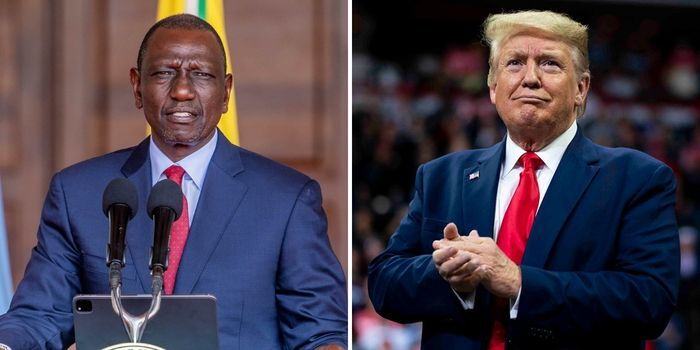United States President Donald Trump has announced plans to impose new tariffs on countries that implement Value Added Tax (VAT) on imports, a move that could have significant economic consequences for Kenya.
In a post on X, Trump directed key government officials—including the Secretary of State, Secretary of Commerce, Secretary of the Treasury, and the U.S. Trade Representative (USTR)—to explore and implement tariffs on nations that charge VAT on goods entering the American market. He argued that the VAT system places an unfair burden on U.S. exports.
“On trade, I have decided, for purposes of fairness, that I will charge a reciprocal tariff—meaning whatever countries charge the United States of America, we will charge them. No more, no less!” Trump declared.
He further stated that the U.S. would consider VAT to be equivalent to a tariff, emphasizing that routing goods through other countries to bypass these policies would not be tolerated.
Kenya imposes a standard 16% VAT on imported goods, including those from the U.S., while exports to other countries remain zero-rated. This results in higher prices for American products in Kenya, potentially reducing demand and impacting U.S. export revenues.
On the flip side, Kenya has significantly benefited from the African Growth and Opportunity Act (AGOA), particularly in the textile and apparel sector. Since AGOA’s inception in 2000, Kenya has exported $6.5 billion (Ksh 840B) worth of garments duty-free to the U.S., making it the leading garment exporter under the agreement. Additionally, Kenya has exported $577 million (Ksh 74.5B) worth of nuts to the U.S. under AGOA.
Should the proposed tariffs take effect, the Kenyan economy could face challenges, including increased production costs, potential job losses, and declining export revenues.
Trump defended the tariff policy as a more favorable system for the U.S., arguing that tariffs provide direct revenue to the government and better protect local industries. He suggested that countries feeling burdened by U.S. tariffs could simply reduce or remove their own tariffs against American goods.
“For many years, the U.S. has been treated unfairly by other countries, both friend and foe. This system will immediately bring fairness and prosperity back into the previously complex and unfair system of trade,” Trump stated.
His remarks signal a potential shake-up in global trade dynamics, with Kenya and other VAT-imposing nations facing possible economic repercussions.

